John Dutton Frost was an instrumental figure in establishing the reputation of The Parachute Regiment during World War II. He was described by one of the officers who served under him as a 'legend to legions'.
He was twice awarded the Distinguished Service Order as well as the Military Cross for his actions in the field. He was appointed a Companion of the Bath in 1964 and awarded the Cross of Grand Officer by the Sovereign Military Order of Malta in 1966.
Frost's first parachute course was number 2 from 18-30 November 1941. However, it did not go to plan. The description states: "Lt Colonel Flavell, MC., OC., No 2 Parachute Battalion and his Adjutant, Captain Frost were also included . Unfortunately both these officers sustained injuries on their second descent from the balloon and were unable to complete the course".
Frost recalled the course in his memoir:
"At the beginning of December my Commanding Officer decided that he and I should go over to do our qualifying jumps together. We booked rooms at the George Hotel at Knutsford and arranged to finish in as short a time as possible. Neither of us had managed to do more than a very limited amount of training, but by this time one or two other sedentary workers had completed the course and we thought to chance it. Colonel Flavell was cheerful in almost any circumstance, but then came the morning when we found ourselves sitting side by side in the crazily swaying basket of a balloon which was rising slowly to a height of six hundred feet above Tatton Park, and we smiled at each other the learner parachutist's smile, which has no joy or humour in it. One merely uncovers one's teeth for a second or two then hides them again quickly lest they should start chattering. It was quiet up there, but conversation was difficult. I found that one had to swallow hard before making a remark and no one else was feeling talkative. We fiddled anxiously with our harness and occasionally threw a quick agonized glance at the ground below, but in the main we stared upwards, praying hard.
The Colonel went first and I soon followed. The first sensation of falling drew the breath from my lungs till a crackling sound from above and a sudden pull on my harness told me that the parachute was open, and the rest of it was heavenly. I had a very gentle landing and the Colonel likewise, so we decided to go and do another one right away. This time we were brimful of confidence and chattered away happily all the way up, laughing at the misery of the other two officers in the basket. As I was coming down I heard someone shouting, 'Keep your legs together.' A small gust of wind had given me a slight swing and I was wriggling in my harness in a clumsy attempt to counteract this. I landed with my feet apart and all the weight of my body was taken by my left leg. I felt a savage wrench in that knee and lay in pain on the ground for a few seconds before being able to get up".
Frost's knee swelled up and had to be drained when he was operated on the next day. He was told that he would need a month to recover. By the third week of January, the Scottish C Company had been earmarked for the Bruneval raid and Frost states that he had yet to finish his parachute course. C Company were due to move to Tilshead on Salisbury Plain, and there was now the question of who would go with them. Philip Teichman, Commander of B Company, was already parachute trained and ready to go to Tilshead with the Scots for Bruneval if needed. But Frost was told that if he could qualify within a week he could go with C Company instead. As a precaution, Teichman was sent to Tilshead with an advance party in the event that Frost failed. At that time, Frost was required to complete 6 training jumps, but there were also only 6 Whitley aircraft for the whole of the Parachute Training School.
Fortunately, Frost passed his second parachute course, as he describes:
"I found that I was to be treated with considerable privilege, that all the usual formalities and regulations which went with the course would be waived, and that I should be allowed to do my jumps in as short a time as possible. From further conversation with him I could not help deducing that the company had been earmarked for something fairly important, and it might be action against the enemy"
The course was delayed for a day due to fog, but began thereafter:
"The weather cleared late in the afternoon and I landed safely at Tatton Park some ten minutes after leaving Ringway. I found that I much preferred to jump from the aircraft than from the balloon. The noise and harsh movement of the one was definitely reassuring after the silence and sickening sway of the other. After taking off my parachute I ran to the car park and persuaded someone to drive me back to the airport where I arrived just in time to catch one of the last planes. This time I barely missed landing in a large tree in the middle of the Park. The next day I did another jump late in the evening and the day after that in perfect weather I completed my course with great relief
Commissioned into the British Army in 1932, Frost later joined the 2nd Parachute Battalion on its formation in 1941, successfully commanding the Bruneval Raid to capture vital radar components in enemy occupied France early the following year.
Frost went onto command the battalion during a costly campaign in North Africa, which included a combat drop some 50 miles behind enemy lines for an attack on two airfields held by the Germans. Only 160 men of his battalion made it back after a fighting withdrawal to Allied lines.
He later commanded the battalion through operations in Sicily and Italy in 1943. The famous battle at Arnhem, in the Netherlands, followed in 1944 where his battalion held the road bridge against overwhelming odds until forced to withdraw after running out of ammunition. The Dutch renamed the bridge in honour of him in 1978.
Frost continued to serve in the Army after the war rising to the rank of Major General and serving as General Officer Commanding Malta and Libya before his retirement.
For further information please see the biography and other articles below.
Compiled with information from:
Ringway Course Report 2
A Drop Too Many (2002), Major-John Frost CB DSO MC
Night Raid (2013), Taylor Downing, p.167.
Read More





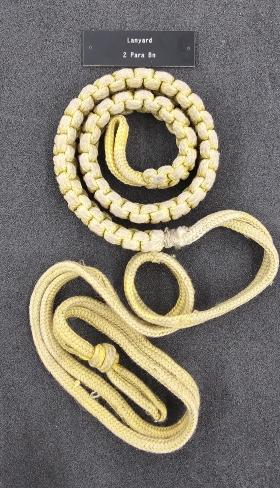
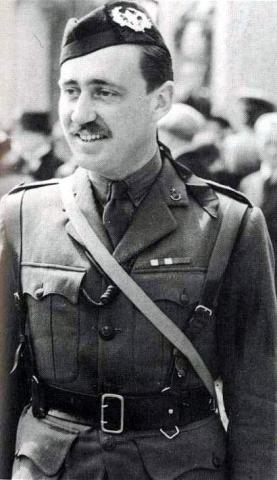
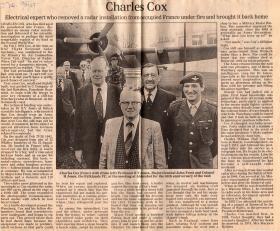
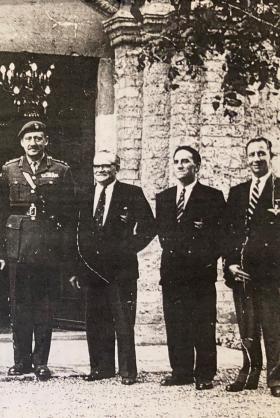
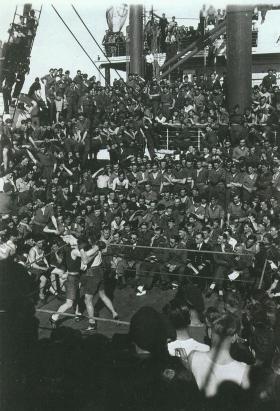
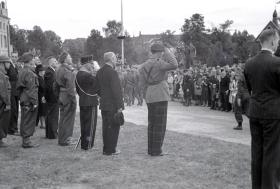
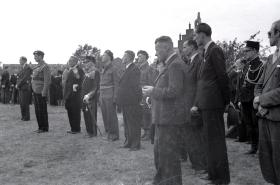
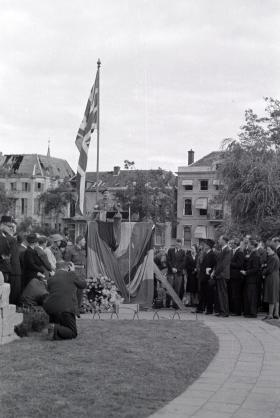
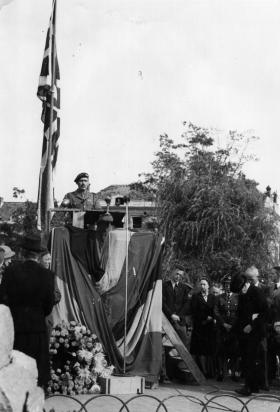
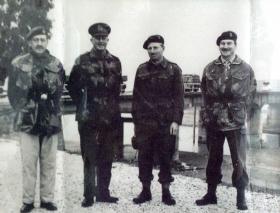
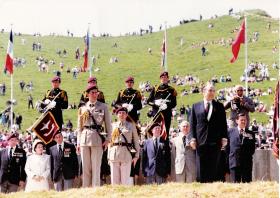
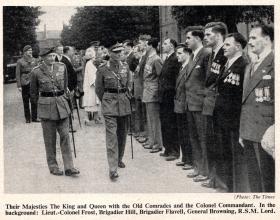
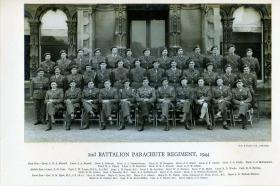
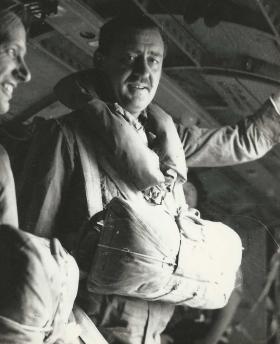
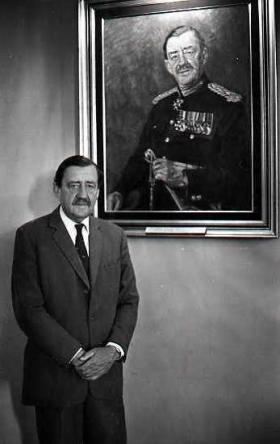
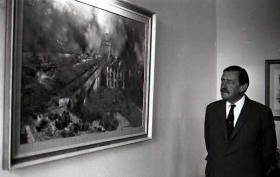
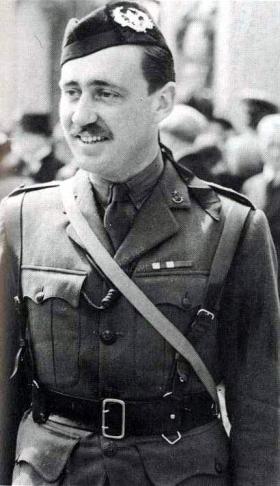
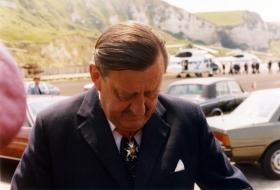
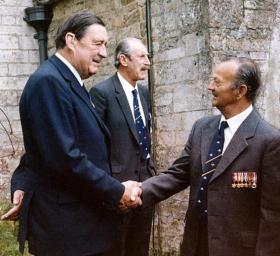
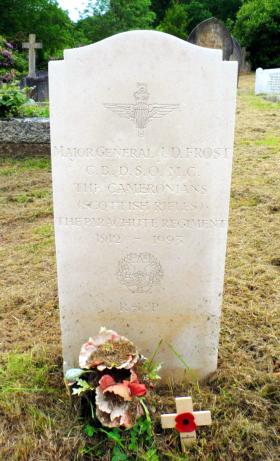

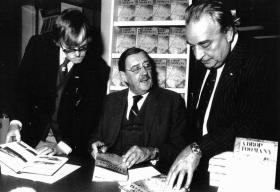
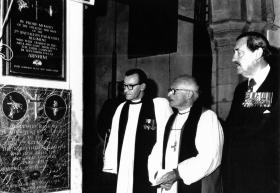
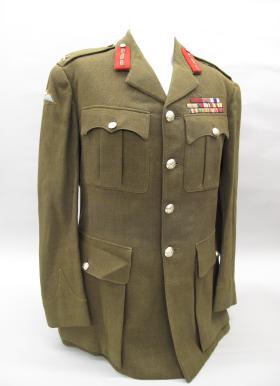
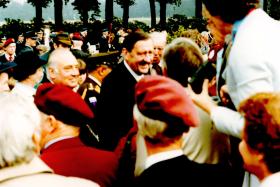
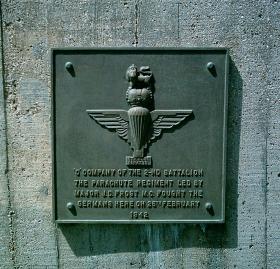
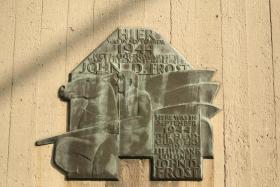
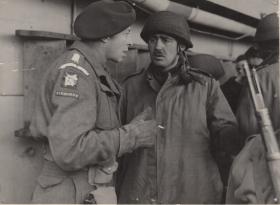
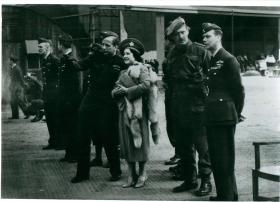
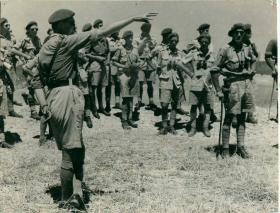
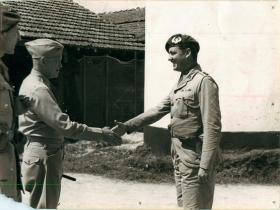
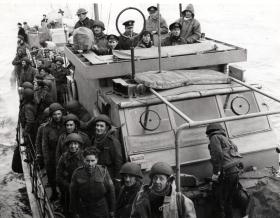
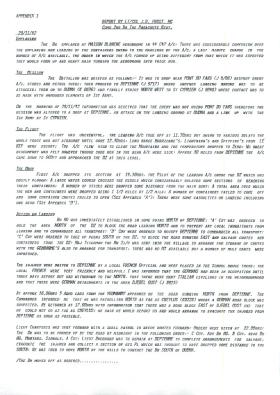
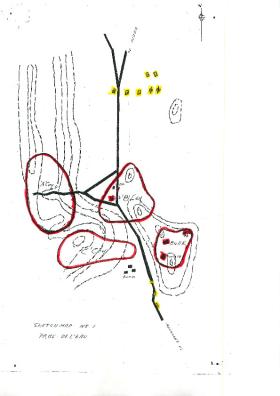
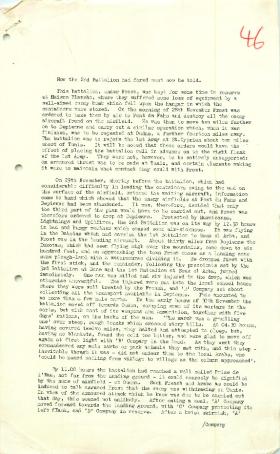
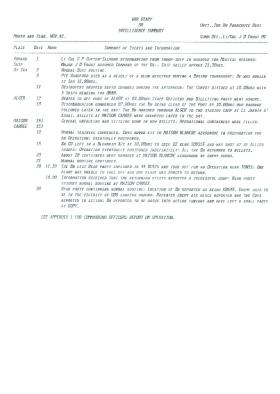
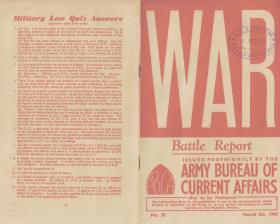
Latest Comments
There are currently no comments for this content.
Add Comment
In order to add comments you must be registered with ParaData.
If you are currently a ParaData member please login.
If you are not currently a ParaData member but wish to get involved please register.